- Home
- Paulo Coelho
The Valkyries Page 3
The Valkyries Read online
Page 3
If I have to spend another thirty-nine days locked up with Paulo, I’ll commit suicide, she promised herself.
THAT AFTERNOON, THEY WENT TO A COFFEE SHOP ACROSS the street from the hotel. Paulo chose a table by the window. They ordered ice cream. Chris had spent several hours studying her second mind, and had learned to control it much better than before, but her appetite was never subject to control.
Paulo said, “I want you to pay close attention to the people who pass by.”
She did as Paulo had asked. In the next half hour, only five people passed by.
“What did you see?”
She described the people in detail—their clothing, approximate age, what they were carrying. But apparently that wasn’t what he wanted to hear. He insisted on more, trying to get a better answer, but couldn’t do so.
“Okay,” he said. “I’m going to tell you what it was that I wanted you to notice: All the people who passed by in the street were looking down.”
They waited for some time before another person walked by. Paulo was right.
“Gene asked you to look to the horizon. Try that.”
“What do you mean?”
“All of us create a kind of ‘magic space’ around us. Usually it’s a circle with about a fifteen-foot radius, and we pay attention to what goes on within it. It doesn’t matter whether it’s people, tables, telephones, or windows; we try to maintain control over that small world that we, ourselves, create.
“A magus, though, always looks much further. We expand that ‘magic space’ and try to control a great many more things. They call it ‘looking at the horizon.’”
“Well, why should I do that?”
“Because you’re here. If you do it, you’ll see how much things change.”
When they left the coffee shop, she started to pay attention to things in the distance. She noticed the mountains, the occasional cloud that appeared as the sun began to set, and—in a strange way—she seemed to be seeing the air about her.
“Everything Gene told you is important,” Paulo said. “He has already seen and talked with his angel, and he is using you as a means of instructing me. He knows the power of his words, and he knows that advice not heeded is returned to its giver, losing its energy. He needs to be sure that you are interested in what he tells you.”
“Well, why doesn’t he show these things directly to you?”
“Because there is an unwritten rule in the Tradition: A master never teaches another master’s disciple. And he knows I am J.’s disciple. But since he wants to be of help to me, he is using you for that purpose.”
“Is that why you brought me here?”
“No. It was because I was afraid of being alone in the desert.”
He could have said it was because he loves me, she thought. That would have been more truthful.
THEY STOPPED THE CAR ON THE SHOULDER OF THE narrow dirt road. Two days had passed, and they were to meet Gene that night—Gene, who had told her always to look to the horizon. She was excited about their meeting.
But it was still morning. And the days in the desert were long.
She looked out at the horizon: mountains that suddenly sprang up millions of years ago, crossing the desert in a long cordillera. Although the earthquakes that created them had occurred long ago, one could still see how the earth’s surface had buckled—the ground still climbed smoothly toward the mountains, and then, at a certain altitude, a kind of wound opened, out of which rocks sprang, pointing to the sky.
Between the mountains and the car was a rocky valley with sparse vegetation: thorn bushes, cacti, and yucca. Life that insisted on surviving in an environment that didn’t support it. And an immense white expanse the size of five football fields stood out in the middle of it all. It reflected the morning sun, and resembled a field of snow.
“Salt. A salt lake.”
Yes. This desert must once have been the bed of an ocean. Once a year, seagulls from the Pacific Ocean flew the hundreds of miles to this desert to eat the species of shrimp that appeared when the rains began. Human beings may forget their origins, but nature, never.
“It must be about three miles from here,” Chris said.
Paulo checked his watch. It was still early. They had looked to the horizon and it had shown them a salt lake. One hour’s walk there, another to return, no risk of the midday sun.
Each placed a canteen of water on their belt. Paulo put his cigarettes and a Bible in a small bag. When they arrived at the lake, he was going to suggest that they read a passage from it, chosen at random.
THEY BEGAN TO WALK. CHRIS KEPT HER EYES FIXED on the horizon whenever possible. Although it was a simple thing to be doing, something strange was happening: She felt better, freer, as if her internal energy had been increased. For the first time in many years, she regretted not having taken a more intense interest in Paulo’s “Conspiracy.” She had always imagined difficult rituals that only those who were prepared and disciplined could perform.
They walked at a leisurely pace for half an hour. The lake appeared to have shifted its location; it always seemed to be at the same distance from them.
They walked for another hour. They must already have covered four miles or so, but the lake appeared to be only a bit closer.
It was no longer early morning, and the heat of the sun was building.
Paulo looked back. He could see the car, a tiny red point in the distance but still visible—impossible to become lost. And when he looked at the car, he saw something else that was important.
“Let’s stop here,” he said.
They left the path they were taking and walked to a boulder. They huddled in close to it, because it cast only a very small shadow. In the desert, shadows appear only early in the morning or late in the afternoon, and then only near the rocks.
“Our calculation was wrong,” he said.
Chris had already noticed that. She was surprised, because Paulo was good at estimating distances, and he had trusted her guess of three or four miles.
“I know how we went wrong,” he said. “There’s nothing in the desert to base comparisons on. We’re used to calculating distance based on the size of things. We know the approximate size of a tree, or a telephone pole, or a house. They help us to decide whether things are near or far away.”
Here, there was no point of reference. There were rocks they’d never seen, mountains whose size they could not estimate, and only the sparse vegetation. Paulo had realized this as he looked back at the car. And he could see that they had walked more than four miles.
“Let’s rest a while, and then we’ll go back.”
That’s all right, Chris thought. She was fascinated with the idea of continuing to look out at the horizon. It was a completely new experience for her.
“This business of looking at the horizon, Paulo…” Chris paused.
He waited, knowing that she would continue. He knew that she was worried that she might say something silly, or find some esoteric meaning in things, as many do who know only a little about the path.
“It seems as if…I don’t know…I can’t explain it…as if my soul has grown.”
Yes, Paulo thought. She’s on the right track.
“Before, I looked in the distance, and things in the distance seemed really far, you know? They seemed not to be a part of my world. Because I was used to looking only at things that were close, the things around me.
“But, two days ago, I got used to looking into the distance. And I saw that besides tables, chairs, and objects, my world also included the mountains, clouds, the sky. And my soul—my soul seems to have eyes that it uses to touch those things.”
Wow! That’s a great way of saying it, Paulo thought.
“My soul seems to have grown,” Chris repeated.
He opened the bag, took out his cigarettes, and lit one before speaking.
“Anyone can see that. But we’re always looking at the things that are closest to us. Looking down and inward. So our po
wer diminishes, and using your term, our soul shrinks.
“Because our soul includes nothing but ourselves. It doesn’t include oceans, mountains, other people; it doesn’t even include the walls of the houses where we live.”
Paulo liked the expression “My soul has grown.” If he had been talking with another member of the Tradition, there’s no doubt that he would have heard much more complicated explanations, such as “My consciousness expanded.” But the term his wife had used was more exact.
He finished his cigarette. There was no point in insisting that they make it to the lake; the temperature would soon reach 110 in the shade. The car was far away, but visible, and in an hour and a half they’d be back to it.
They started walking. Surrounded by the desert, by the huge horizon, a feeling of freedom began to grow in their souls.
“Let’s take off our clothes,” Paulo said.
“But someone might be watching,” Chris said automatically.
Paulo laughed. They could see for miles around them. The day before, when they had been out walking all morning and afternoon, only two cars had passed—and, even then, they had heard the sound of their approach long before the cars had appeared. The desert was the sun, the wind, and the silence.
“Only our angels are watching,” he answered. “And they’ve already seen us naked many times.”
He took off his shorts and his shirt and the canteen, placing them all in the bag.
Chris struggled to keep from laughing. She took her clothes off too, and in a few moments they were two people crossing the Mojave in their sneakers, their hats, and their sunglasses—one of them carrying a bag. Anyone watching would find it hilarious.
THEY WALKED FOR HALF AN HOUR. THE CAR WAS STILL just a point on the horizon, but—in contrast to the lake—it was growing in size as they approached it. They would be there in a short while.
Suddenly, Chris felt tremendously tired.
“Let’s rest for a few minutes,” she said.
Paulo stopped immediately, saying, “I can’t carry this bag anymore. I’m really tired.”
How could be not be able to carry the bag? Even with everything it held, it couldn’t weigh more than six or seven pounds.
“You have to carry it. The water’s in there.”
Right, he had to carry it.
“Well then, let’s get going,” he said irritably.
Everything was so romantic just a few minutes ago, thought Chris. And now he was irritated. Well, forget it. She was tired, too.
They walked a bit farther, and their exhaustion worsened. If it were up to her, nothing more would be said—she didn’t want to make things worse.
What a dope, she thought. To get angry in the midst of such beauty, and right after they had been talking about such interesting things as…
She couldn’t remember, but it wasn’t important. She was too tired to think now.
Paulo stopped and put the bag down in the sand.
“Let’s rest,” he said.
He didn’t seem irritated now. He must be getting tired, too. Just like her.
There was no shade. But she needed to rest.
They sat down on the hot sand. The fact that they were naked and that the ground burned their skin didn’t matter. They had to stop. Just for a while.
She remembered what they had been discussing: horizons. She noticed that now, even without wanting to, she had the feeling that her soul had grown. And it seemed like her second mind had stopped working altogether. She didn’t think of melodies or repetitious things, and she didn’t even care if someone was watching them walk naked across the desert.
Nothing was important. She felt relaxed, unworried, free.
They sat there for a few minutes in silence. It was hot, but the sun didn’t bother them. If it started to, they had plenty of water.
He stood up first.
“I think we had better keep walking. It’s not far to the car now. We’ll rest in the air-conditioning when we get there.”
She was sleepy. She just wanted to nap for a bit. But she got up, anyway.
They walked a bit farther, and now the car was getting close. Not more than ten minutes to walk.
“Since we’re so close, let’s sleep for a while. Five minutes.”
Sleep for five minutes? Why would he say that? Was he reading her mind? There couldn’t be any problem with sleeping for just five minutes. They could get a good tan, as if they’d been to the beach.
They sat down again. They had been walking for half an hour, not counting their pauses. Why couldn’t they just sleep for five minutes or so?
They heard the sound of a motor. Half an hour earlier, she would have leaped up and dressed in a hurry. But now, so what? It didn’t matter at all. Let anyone look who wants to look. It didn’t make any difference to her. She just wanted to sleep.
Paulo and Chris watched calmly as a truck drove down the road, passed their car, and stopped just beyond. A man got out and walked toward the vehicle. He looked inside, then walked around the car, examining everything.
Might be a thief, Paulo thought. He imagined the guy stealing the car, leaving them both stranded in the desert with no way to get back. The key was in the ignition—he hadn’t taken it with him for fear of losing it.
But they were in the Mojave Desert. In New York, maybe. But here—no one stole cars here.
Chris looked out at the desert. It was golden and beautiful. Golden. Different from the pinkness of the desert at sundown.
An agreeable feeling of relaxation permeated her entire body. The sun didn’t bother her—people didn’t know how lovely the desert could be during the day!
The man gave up his inspection of the car, and placed his hand above his eyes. He was looking for them.
She was naked…and he would surely see that. So what? Paulo didn’t seem worried, either.
The man began walking toward them. The feeling of lightness and euphoria was increasing, but exhaustion kept them from moving. The desert was golden and beautiful. Everything was serene, at peace—the angels, yes, the angels would appear before long. That was what they had come to the desert for—to talk with their angels!
She was naked, and she was not ashamed.
The man stopped when he reached them. What language was he speaking? They couldn’t understand what he was saying.
Paulo tried to concentrate on what he was hearing, and realized that the man was speaking English. After all, they were in the United States.
“Come with me,” the man said.
“We want to rest,” Paulo said. “Five minutes.”
The man picked up the bag and opened it.
“Put this on,” he said to Chris, handing her clothing to her.
She forced herself to get up, and did as he said. She was too tired to argue.
He ordered Paulo to do the same, and Paulo was also too tired to argue. The man saw the canteens filled with water, opened one of them, filled the cap, and ordered them to drink.
They weren’t thirsty. But they did as the man said. They were quite calm, and completely at peace with the world—and they had no desire to argue.
They would do anything they were told to do, obey any order, so long as they were left in peace.
“Let’s walk,” the man said.
They couldn’t even think. They sat there gazing at the desert. They would do anything so long as the stranger left them alone.
But the man escorted them to the car, told them to get in, and started the engine. “I wonder where he’s taking us,” Paulo thought. But he wasn’t worried—the world was at peace, and the only thing he wanted to do was sleep. Surely his angel would appear before long.
PAULO AWOKE WITH HIS STOMACH CHURNING, AND A tremendous need to vomit.
“Lie still for a while longer.”
Someone was speaking to him, but in his head there was only confusion. He still remembered the golden paradise where all had been serene and peaceful.
He tried to move, and fe
lt as if thousands of needles were sticking into his head.
I think I’ll go back to sleep, he thought. But he couldn’t—the needles wouldn’t allow it. And his stomach was still turning over.
“I want to throw up,” he said.
When he opened his eyes, he saw that he was sitting in a kind of mini-market: He could see several refrigerator cabinets with soft drinks and shelves with foodstuffs. The sight of the food made him feel nauseated again. Then he noticed nearby a man he had never seen before.
The man helped him to get up. In addition to the imaginary needles in his head, Paulo realized that he had another in his arm. Only this one was real.
The man held the needle in place and helped Paulo to the bathroom, where he vomited some water, nothing more.
“What’s happening? What’s this needle for?”
It was Chris, speaking Portuguese. He returned to the store and saw that she was sitting up, too, with a needle in her arm.
Paulo felt a little better now, and no longer needed the man’s support. He helped Chris up and to the bathroom, where she vomited.
“I’m going to use your car to get back to mine,” the stranger said. “I’ll leave the keys in the ignition. You can get a ride to it when you’re ready.”
Paulo was starting to remember what had happened, but the nausea had returned, and he had to vomit again.
When he came back, the man had left, but a boy of seventeen or eighteen was there.
“Just another hour,” the boy said. “The solution will be used up then, and you can go.”
“What time is it?”
The boy told them. Paulo struggled to get up—he had an appointment, and there was no way he was going to miss it.
“I have to meet with Gene,” he said to Chris.
“Sit down,” the boy said. “Not until the solution is used up.”
The comment was unnecessary. Paulo no longer had either the strength or desire to walk even to the door.
I’ve missed the meeting, he thought. But at this point, nothing mattered. The less he thought about, the better.

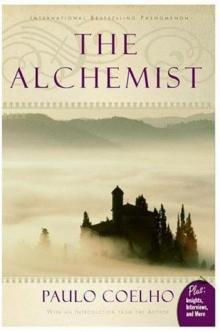 The Alchemist
The Alchemist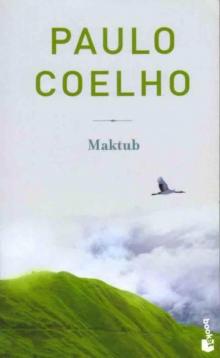 Maktub
Maktub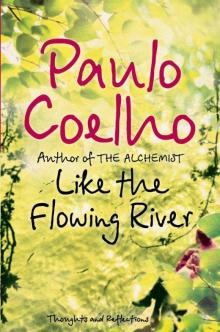 Like the Flowing River
Like the Flowing River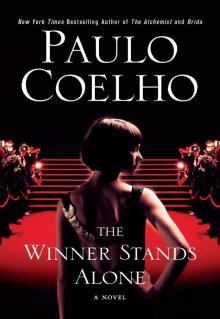 The Winner Stands Alone
The Winner Stands Alone The Spy
The Spy By the River Piedra I Sat Down and Wept: A Novel of Forgiveness
By the River Piedra I Sat Down and Wept: A Novel of Forgiveness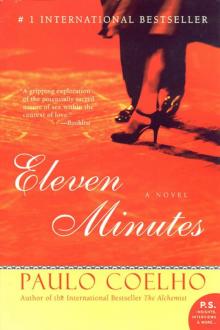 Eleven Minutes
Eleven Minutes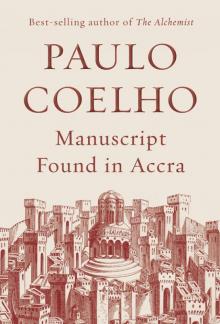 Manuscript Found in Accra
Manuscript Found in Accra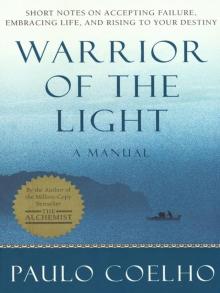 Warrior of the Light
Warrior of the Light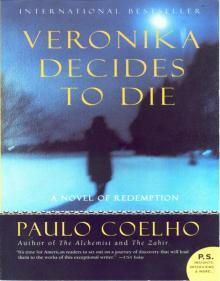 Veronika Decides to Die: A Novel of Redemption
Veronika Decides to Die: A Novel of Redemption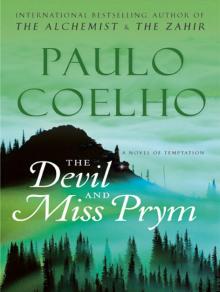 The Devil and Miss Prym: A Novel of Temptation
The Devil and Miss Prym: A Novel of Temptation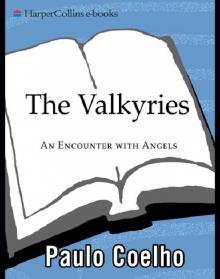 The Valkyries: An Encounter With Angels
The Valkyries: An Encounter With Angels Brida: A Novel
Brida: A Novel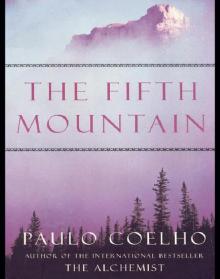 Fifth Mountain: A Novel
Fifth Mountain: A Novel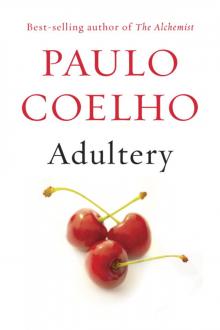 Adultery
Adultery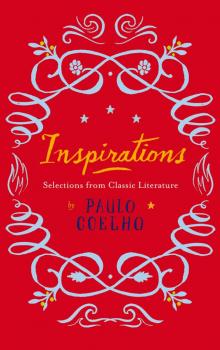 Inspirations
Inspirations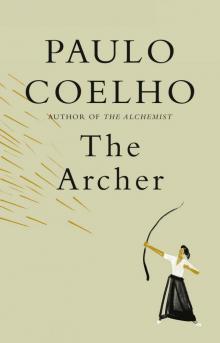 The Archer
The Archer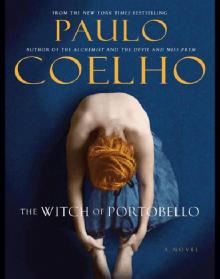 The Witch of Portobello
The Witch of Portobello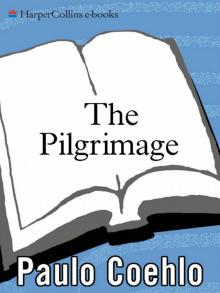 The Pilgrimage
The Pilgrimage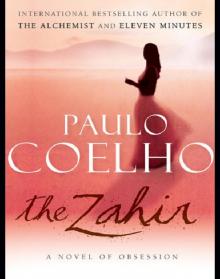 The Zahir
The Zahir Brida
Brida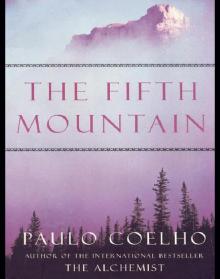 The Fifth Mountain
The Fifth Mountain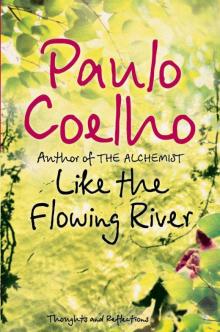 Like the Flowing River: Thoughts and Reflections
Like the Flowing River: Thoughts and Reflections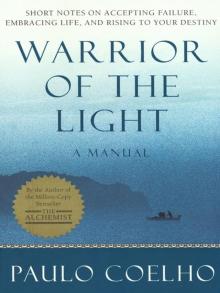 Manual of the Warrior of Light
Manual of the Warrior of Light By The River Piedra I Sat Down & Wept
By The River Piedra I Sat Down & Wept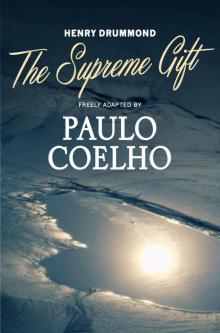 The Supreme Gift
The Supreme Gift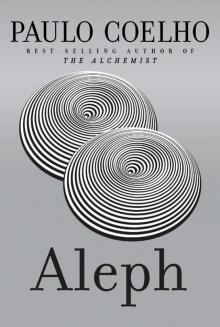 Aleph
Aleph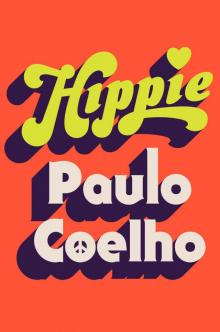 Hippie
Hippie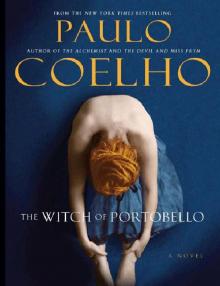 Witch of Portobello
Witch of Portobello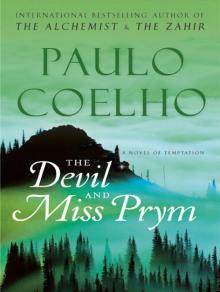 The Devil and Miss Prym
The Devil and Miss Prym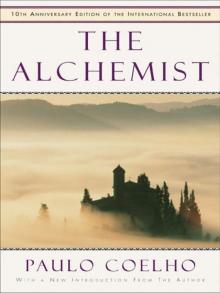 The Alchemist - 10th Anniversary Edition
The Alchemist - 10th Anniversary Edition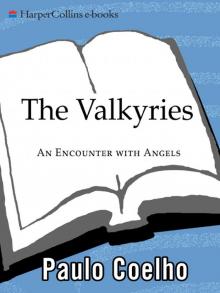 The Valkyries
The Valkyries